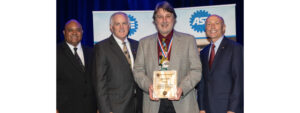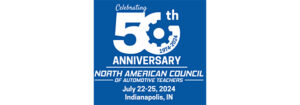Tech wages are the number one reason that has created the automotive industry tech shortage. Not high school shop classes or trade centers going away
In part one we talked about overall motivations and what makes up a good Incentive Plan (IP) and we used this formula to get a better understanding of what incentive plans include:
Pay Plan + Benefits Plan + Purpose Plan = Incentive Plan.
Today we will look deeper into technicians’ actual pay plan incentives.

Base hourly wage is the typical starting place for most techs. This base hourly wage unit, whether an hourly pay plan or performance based (flat rate) type pay, is the tech’s first line of “feeling secure” in the job. It can also be part of their self-worth and/or ego and bragging rights of how much they make.
Here is where shop owners can shoot themselves in the foot when thinking about attracting young and/or seasoned techs. Most shop owners are using “old school” thinking that is just that, old — outdated and not producing the results of attracting higher levels of talent with a deep commitment to their career and a shop.
The skillset and personal investment in time and money for tools to be a master level technician who only makes $25 to $30 with bonuses doesn’t work anymore. That only yields about $60,000 to $70,000 annually before taxes. They can take that same skillset and go make $100,000 to $150,000 in other high-tech industry jobs or careers and not have to buy $50,000 to $75,000 worth of tools.
The need now is for tech wages to be $50 to $60, realized pay, and in three to five years the need will climb to $70 to $80.
Tech wages is the number one reason that has created the automotive industry tech shortage. Not high school shop classes or trade centers going away. They went away because the pay ROI didn’t match the career effort and investment a young person had to make. When we, as an industry, take ownership of creating the tech shortage it will only be then that we can actually make the changes needed to eventually have young talent be on waiting list to work for shops. It will not be done with scarcity mindsets but with abundant mindsets.
Younger talent offers of only $12-$15 base wage won’t cut it as well. This entry low-level base wage has done more to harm our industry than any one thing. That’s a fast food wage. Not a wage for someone on course for a high-tech career. Entry wages need to be closer to the $20 to $25 as the STARTING POINT and rise fairly quickly based on their ability to produce on their efforts. A $5 to $7-hour raise over a seven to 10-year period won’t cut it.
By now many of you may be feeling a wallet cramp. “I can’t afford to pay those high ages!” I hear it all the time. And in one sense, you are right, but the thinking is off-center. As a shop owner, I never paid my techs their wages. My customers did. It was my job to sell to my customers at elevated value expressions with value words and reasonings that matched the value of my techs and them being worthy of their wages.
I’m going to suggest that any angst about paying “A” Level Master Techs $60 an hour — and still maintain a 70-percent labor gross profit percent — is because your selling systems in your business don’t have the skillsets to sell at higher levels our industry needs in the current marketplace. So the argument goes, HOW do you pay the techs only when the money is actually there?
I have seen several technician scales of a base wage starting at minimum wages and huge hourly increases for sold hour produced to high hourly starting points with a very low bonus amount. They are filtered through scarcity thinking and your techs feel it.
The rabbit hole about wages: Hourly versus performance-based pay (PFBP), or flat rate. Basically, the hourly mindset takes away from those who can perform really well and gives it to those who cannot. It allows those who don’t want to work hard (produce higher results) get paid the same as those who do work hard. It has been justified, including at one point by myself, that hourly is the most honest and ethical way to pay. Otherwise, greed takes over and techs won’t do all the work. In my experience there are both unethical hourly and PFBP techs out there. I see so many adjust their business-proven methods because a few unethical people took advantage of a great system.
Having been an hourly shop that converted to PFBP, I noticed a few things right away:
- My comebacks went down. I was told by others, and I believed it myself, that it actually would be the other way around.
- We sold more legitimate additional repairs and services that should have been done because the tech’s name was on it and he called it. The additional legitimate repairs are actually what created lower comebacks to occur.
- The shop efficiency went from an average of 118 percent to 168 percent. I took 50 percent more to the bank!
Your tech’s pay, and if needed, pay scales should match where you want to go and not “what’s the least amount I can pay and hopefully still get to where I want to go.” Your specific scale should have room to grow as your business grows. I’m not suggesting that starting tomorrow you go out and give your techs huge raise. Be smart about it and timeline a scale bonus that makes sense for your current selling strength. Raise your selling strength and then have incentive plans in place that rewards the techs and advisors for the increase they created.
You are not alone in trying to figure out how to best implement a new pay method or scale. Automotive coaches will help you create a customer plan that is a win-win for the techs and the shop. Our tech pay solutions typically yield a 300 percent Gross Profit ROI.
———————————————————————
Next from Coach Dave in the Enhanced Incentive Plan Series: Part 3 – Team pay plans and more.
** The first five who forward this “Aftermarket Matters Weekly” to another shop BEFORE July 1, and cc’ Coach Dave (copy and paste the email below) will receive a Level One Shop Evaluation including your current incentive plan review.
Dave Schedin can be reached at 800-385-0724, dave@computreksystems.com, and www.computreksystems.com. A complimentary 30-minute discussion is available for the asking.






Comments are closed.